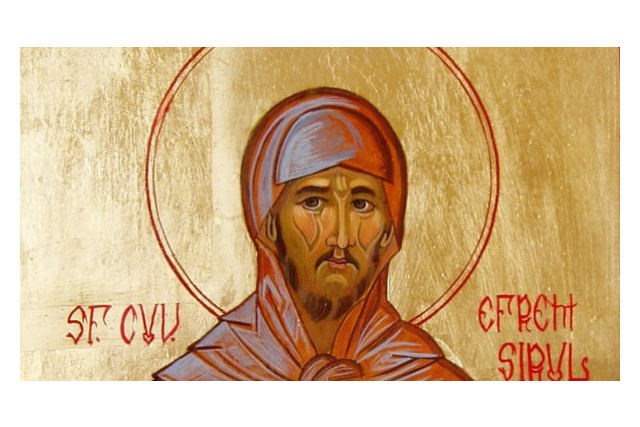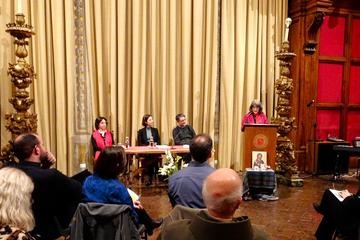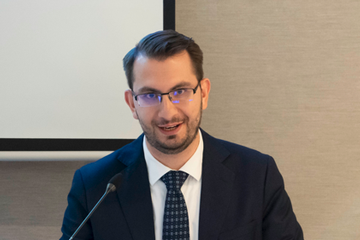
By Laura Ieraci
CHICAGO — The season of prayer, fasting and almsgiving has begun in preparation for the celebration of the Resurrection of Christ on Easter Sunday. Western Christians begin this preparation today, Ash Wednesday. For Eastern Christians who follow the Gregorian calendar, Lent began on Monday.
East or West, Christians are called during this period to reflect on Christ’s sacrifice on the cross and to repent, turning toward him in worship, trust and love.
Having grown up in the Christian West, one of the most beautiful experiences I have had of worshipping in recent years in the Christian East is the Lenten journey toward Pascha or Easter.
In the Byzantine East, Lent, often called the Great Fast, is punctuated with days of strict fasting and abstinence. Eucharist is only celebrated on Sundays, and Liturgies of the Presanctified Gifts, that is, Eucharistic services where the Body and Blood of Christ were consecrated the previous Sunday, are celebrated on Wednesday and Friday evenings. Unlike the West, “Alleluias” are sung throughout the season.
However, the prayer that has always best captured and expressed the spirit of the Lenten journey in the Byzantine East for me is the Prayer of St. Ephrem. St. Ephrem the Syrian was a fourth-century deacon, who lived close to the present-day border of Syria with Turkey. He was declared a Doctor of the Church in 1920. His feast day is Jan. 28 in the churches of Byzantine rite and his optional memorial is celebrated June 9 on the Western calendar of saints.
This short and simple prayer attributed to him is a spiritual sucker punch that seeks to strip away the sinful layers of the sordid soul of the Christian, who in the course of the year has allowed every earthly care to encroach.
The prayer reads:
O Lord and Master of my life,
spare me from the spirit of indifference, despair, lust for power and idle chatter. (prostration)
Instead, bestow on me, your servant,
the spirit of integrity, humility, patience and love. (prostration)
Yes, O Lord and King,
let me see my own sins and not judge my brothers and sisters,
for you are holy, now and ever and forever. Amen. (prostration)
Each word gives reason to pause and reflect: How often have I committed these sinful acts? Do these words describe my actions, attitudes and intentions? How far am I from achieving these Christian virtues? Am I humble enough to want to see my own sins? Do I really desire that the Lord bring about this change in me?
The act of prostrating, which in the East involves dropping to your knees and bowing your head to the floor, is a physical sign of the Christian’s desire to repent in humility and to submit to God, whose grace and mercy lift us up to stand with him at the Resurrection.
This prayer is prayed multiple times a day, during every hour of the Byzantine Daily Office.
To pray it daily throughout Lent is to grow in one’s yearning for greater closeness to God, to open oneself up to the cleansing power of the Holy Spirit and to have a change of heart.
If you decide to journey this Lent with St. Ephrem, whether you worship in the Christian East or West, be not surprised to celebrate Christ’s Passion, death and Resurrection in a new light.
Laura Ieraci is an alumna of The Lay Centre and a regular contributor to Lay Centre publications. She is a doctoral candidate at the Pontifical Gregorian University and the editor of Horizons, the newspaper of the Byzantine Catholic Eparchy of Parma. She lives in Whiting, Indiana, with her husband, who is a Byzantine Catholic priest.


